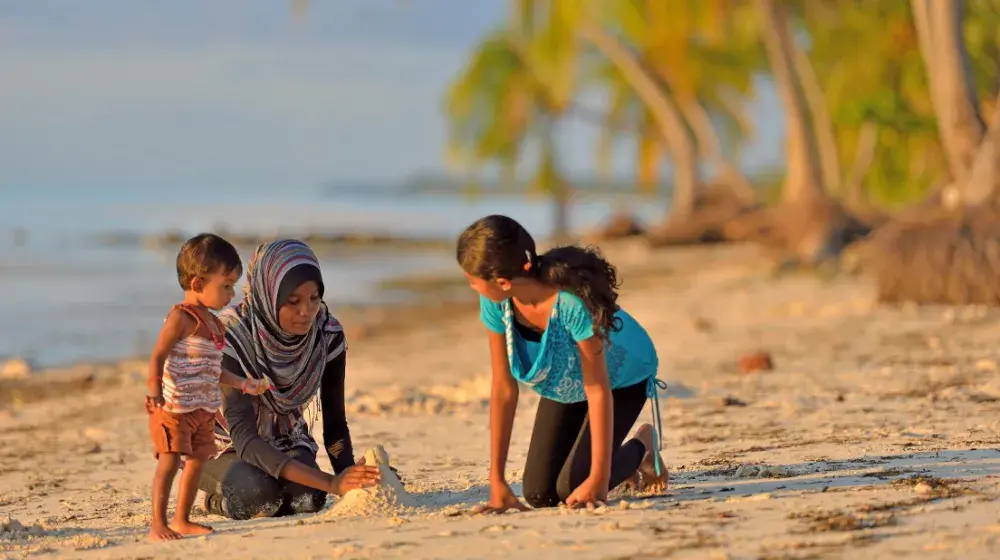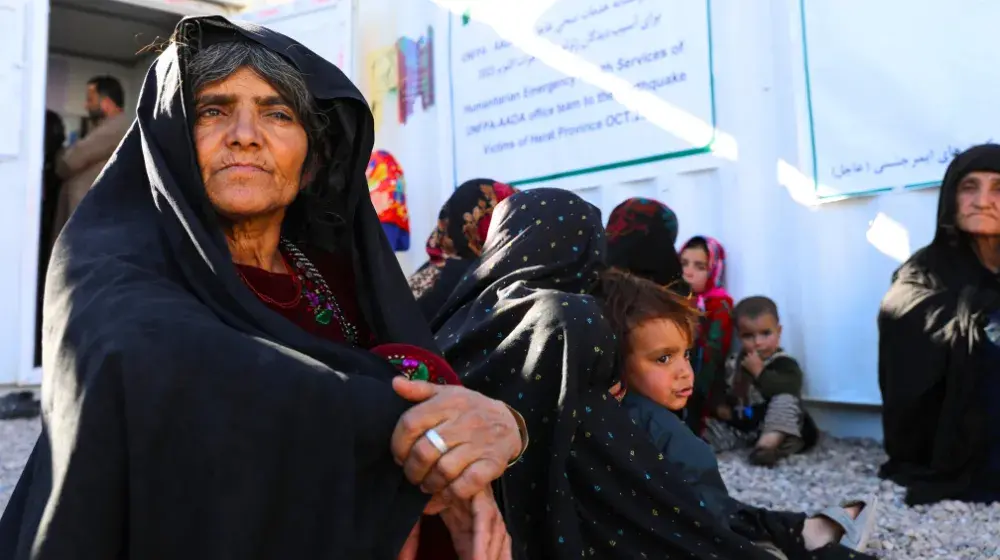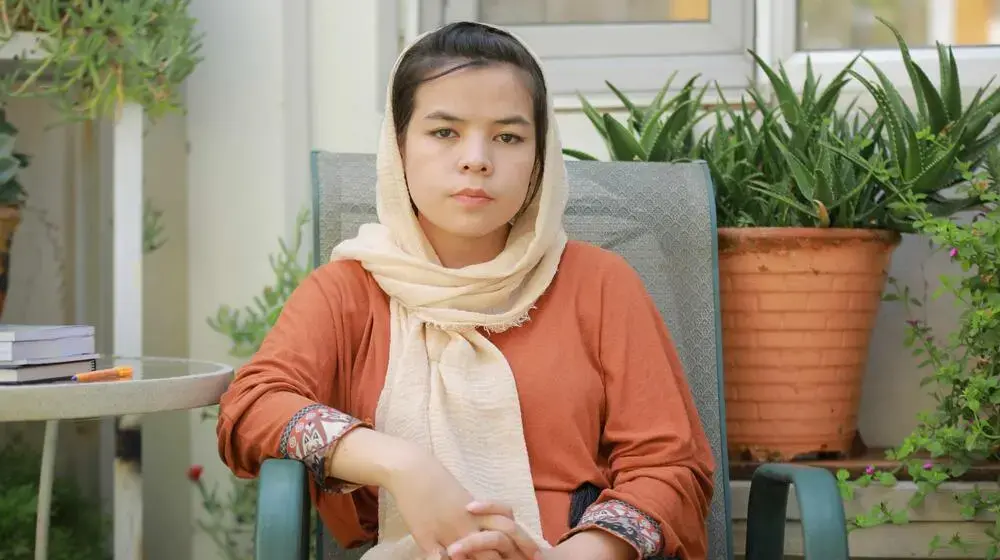The 10th day of the Bhutanese calendar year is a special one. It is celebrated across temples and monasteries throughout the mainly Buddhist Himalayan kingdom with religious mask dances performed as part of the tshechus festival. Today, these traditional dances include life-altering messages on sexual and reproductive health and gender-based violence -- topics that were once considered taboo.
“There has been a change in the mindset of monks, who now freely discuss and advocate on issues of sexual and gender-based violence, which in the past were perceived as a private matter”
“There has been a change in the mindset of monks, who now freely discuss and advocate on issues of sexual and gender-based violence, which in the past were perceived as a private matter”, explains Lopen Sherab Dorji of the Central Monastic Body in the capital Thimphu. He was one of the first monks in Bhutan to participate in a life skills education training conducted by UNFPA, the UN sexual and reproductive health agency.
Her Majesty the Queen Mother, Gyalyum Sangay Choden Wangchuck, has been a catalyst in driving this change. As a UNFPA Goodwill Ambassador since 1999 and the Laureate of the 2020 United Nations Population Award, the Queen Mother has paved the way over the last two decades to improve the reproductive health of women and girls across Bhutan. Reaching out to remote communities and to every section of society – including monastic groups, the armed forces, schools and government agencies - she has been a true advocate in advancing health services and raising awareness on gender equality and sexuality, as well as the prevention of HIV/AIDS among young people.
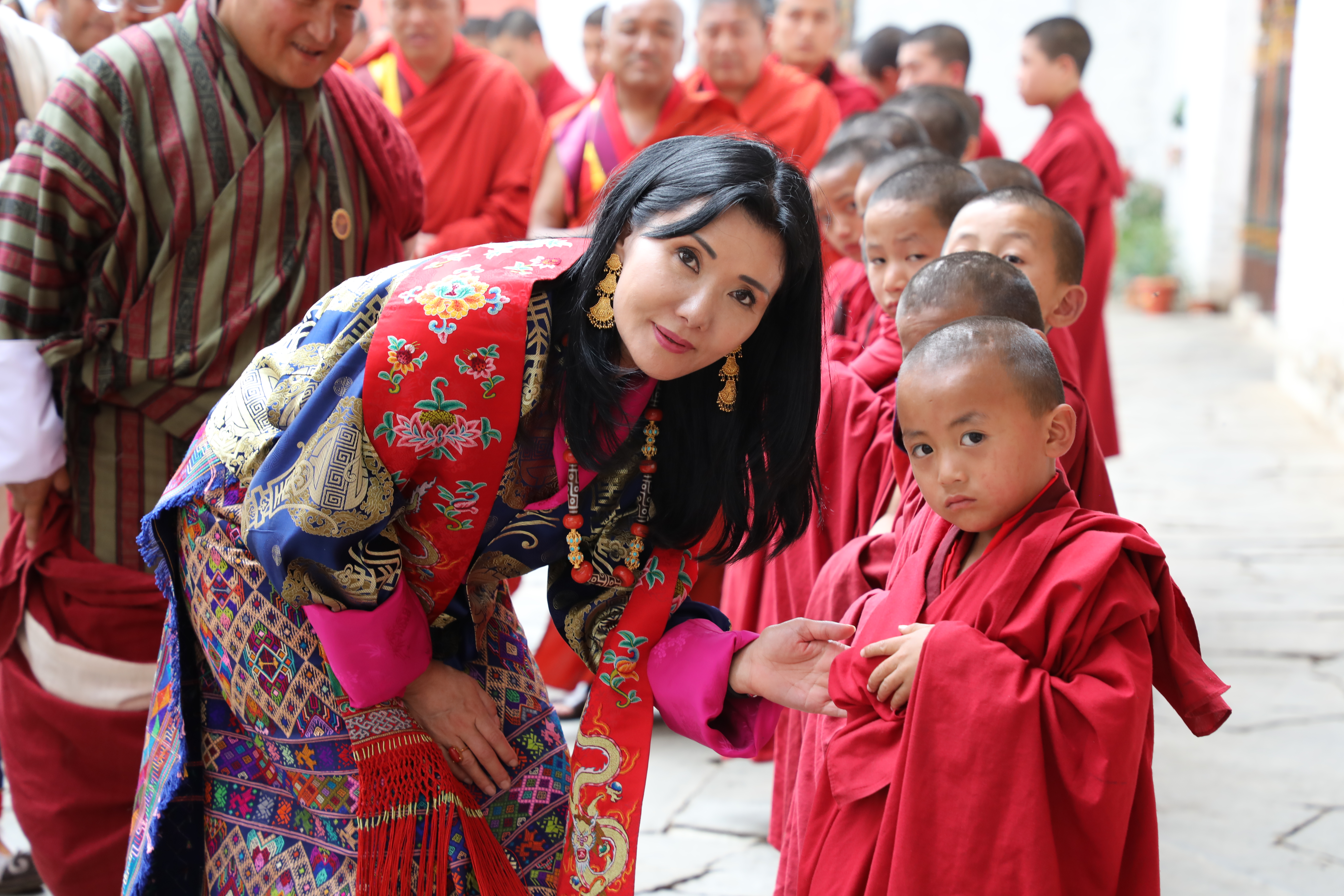
This high-level advocacy over the years garnered support to include family planning, comprehensive sexuality education and sexual and reproductive health into educational and monastic institutions, and in the 1990s, His Holiness the Je Khenpo Trulku Jigme Choedra (Chief Abbot of Bhutan), in his pronouncement about the Buddhist perspective on family planning, clarified that contraception is not against Buddhist principles.
Since 2011, UNFPA Bhutan has intensified engagement with religious leaders as agents of change, initially working with the Bhutan Nuns Foundation. Over the last decade, more than 1,500 nuns across 26 nunneries have been sensitized on sexual and reproductive health and rights issues and gender-based violence prevention, and 80 nuns and 350 heads of monastic institutions including the Central Monastic Body (Zhung Dratshang) have been trained on imparting life skills education.
“I have seen a tremendous change. Nuns have started discussing menstruation openly, and have also started making their own menstrual hygiene products”
“I have seen a tremendous change. Nuns have started discussing menstruation openly, and have also started making their own menstrual hygiene products,” says Nun Lhamo.
She adds, “Nuns have played a crucial role by imparting critical health knowledge to rural women on issues such as the importance of a pap smear, menstrual hygiene, contraceptives and family planning, and have thus gained the trust, respect and confidence of the community”.
In 2014, UNFPA expanded its work on life skills based comprehensive sexuality education to include male monks.
“The life skills education approach has helped demystify the perception that monks should not talk about women’s health and related issues”, adds Lopen Sherab Dorji, reflecting on how the programme has helped to bring about change within the monastery over the last few years.
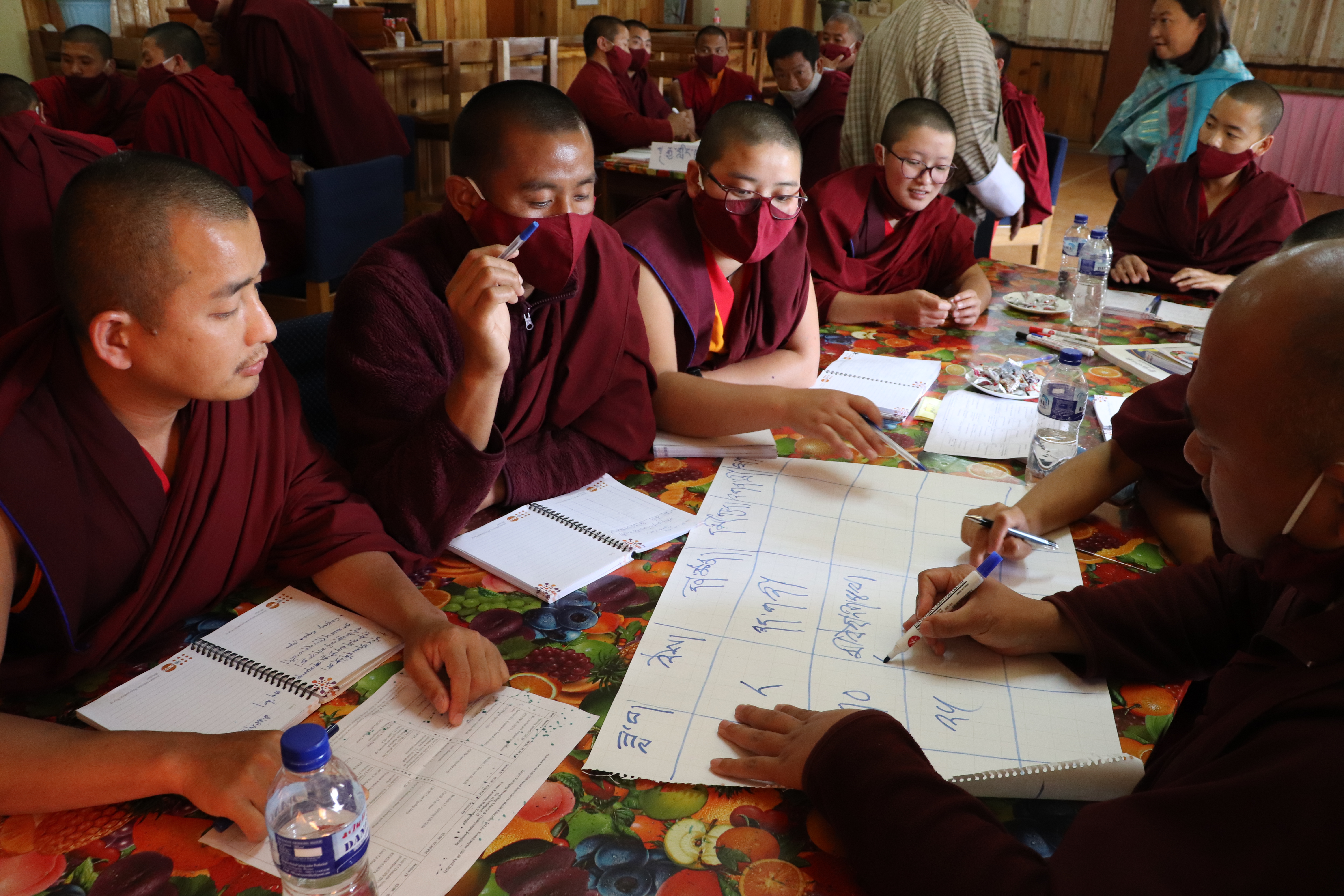
At present, around 47 teachers that have been trained by UNFPA on life skills based comprehensive sexuality education are deputed by the Central Monastic Body to schools across the 20 districts for providing counselling services to students.
“I look forward to imparting the skills and knowledge I have learnt when community members come to my monastery to offer prayers. I also intend to engage primary school children on menstrual hygiene, teenage pregnancy, and advocate on the need to support one other”, says Lopen Karma from Dungmin in Pema Gatshel, another trainee of the UNFPA-supported training.
UNFPA’s partnership with religious leaders has helped break barriers between religion and comprehensive sexuality education. Thousands of young people are being taught on how to steer away from potentially damaging behavior, as well as how to improve their interpersonal relations and lead healthier lifestyles.
Through the engagement with monasteries, UNFPA has contributed to Bhutan’s advancements in sexual and reproductive health services over the past decade. There has been a sharp drop in maternal mortality from a high of 380 in 1994 to 89 per 100,000 live births in 2017 . Additionally, the contraceptive prevalence rate rose to 65.6 per cent in 2018 from 30.7 per cent in 2000, and over 95 per cent of births in the country are now skilled birth deliveries, as opposed to only 23 per cent in 2000.
“The life skills education training helped us grow physically, mentally, and emotionally and now it is our responsibility to disseminate the knowledge and skills to friends, family, and community members towards realizing Bhutan’s development philosophy – Gross National Happiness”
“The life skills education training helped us grow physically, mentally, and emotionally and now it is our responsibility to disseminate the knowledge and skills to friends, family, and community members towards realizing Bhutan’s development philosophy – Gross National Happiness”, concludes Lopen Karchung, from Drametse, Mongar.
UNFPA Bhutan supports the Royal Government of Bhutan`s recognition that fundamental issues such as sexual and reproductive health information and services help women and young people to realize their full potential.


